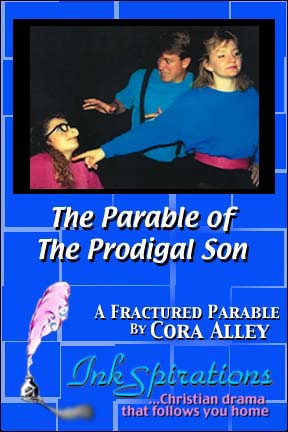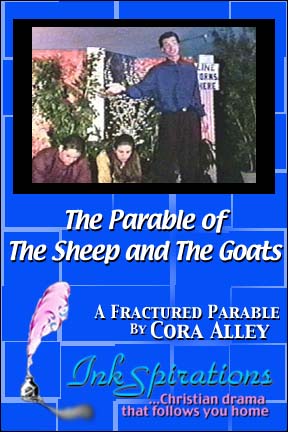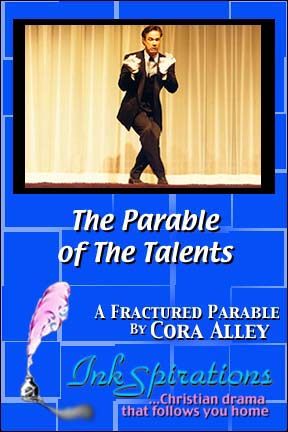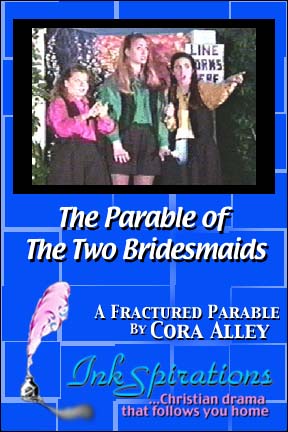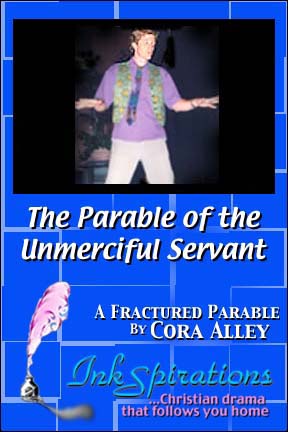.
Today’s “Version”

.
A Fractured Parable is a contemporary, humorous
retelling of one of the parables of Jesus.
The parable is told by the narrator who may, or may not, be involved in the action.
As the parable is told, mimes portray the action, occasionally using props and suggested costume pieces. The mimes generally wear black slacks, black turtlenecks or black and white striped shirts with black suspenders, and white gloves to accent their hand motions. They do not need to wear the traditional “white face” of the mime genre. These Fractured Parables do not require any specific set.
Enjoy A Video Sample
.
The Parable of The Two Bridesmaids
This “Fractured Parable” presents a hilarious retelling of Jesus’ parable of the “Wise and Foolish Virgins.” The foolish bridesmaid fails to have her dress altered in time for the wedding and learns that there are no second chances to be ready to meet the bridegroom, Jesus.
.
.
Click on the title of the script to view a detailed description, and download the FREE script.
.


